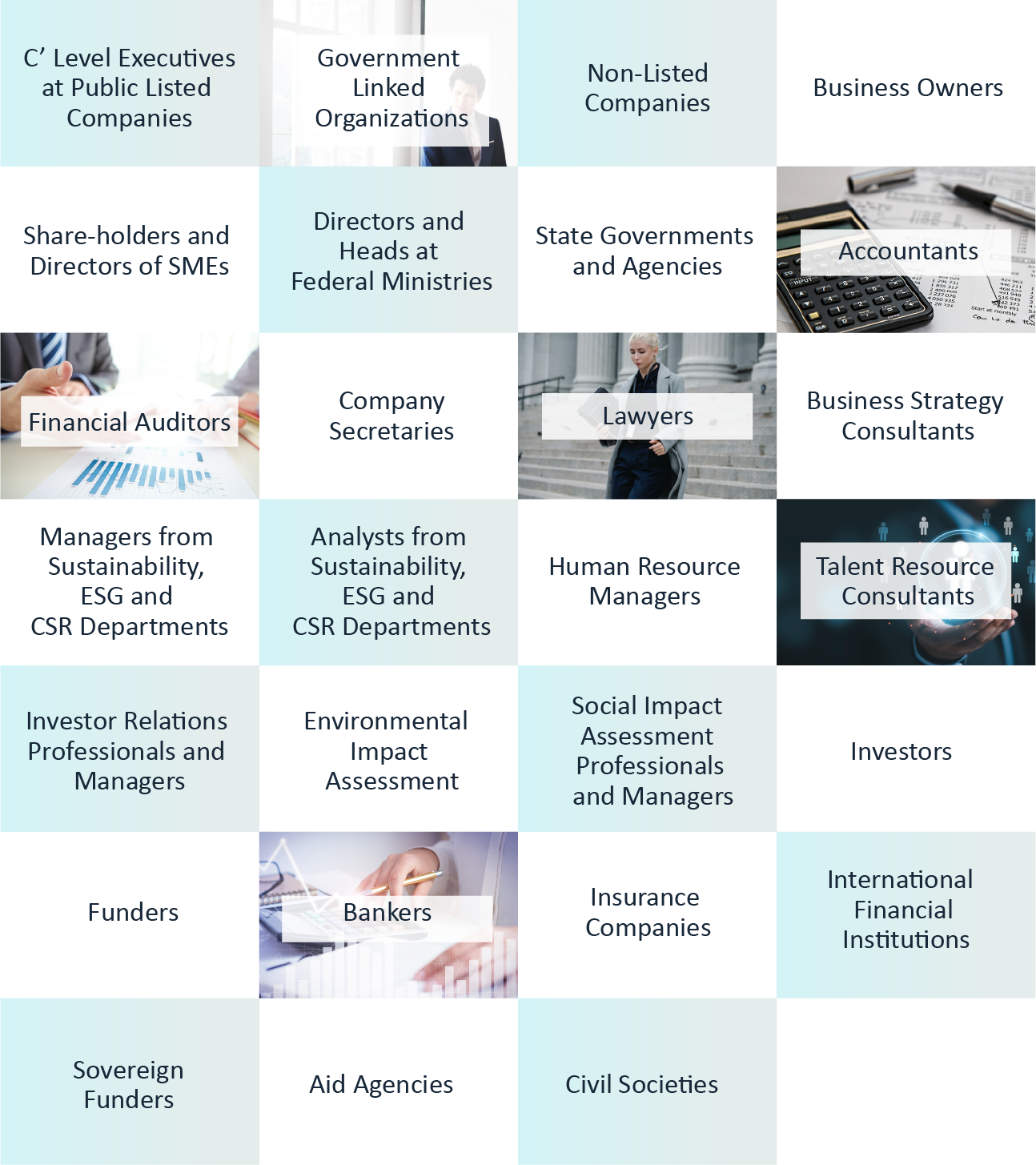The demand for ESG reporting, aimed at achieving transparency regarding environmental commitment, social responsibility, and good corporate governance practices, is gaining momentum in both public and private enterprises. ESG reporting involves disclosing data that encompasses a company's operational impact on the environment, social aspects, and corporate governance. It originated from civil society's endeavours to safeguard the environment and promote social equality, and has subsequently garnered attention from investors who recognize the influence of sustainability issues on a company's long-term risk, return, and value. As a result, countries within and outside the G7 have started implementing mandatory disclosure systems, beginning in 2022.
This course aims to equip ESG leaders and managers with the necessary reporting skills applicable across various disciplines within the realm of ESG reporting. Participants will learn to apply the principles and structure of reporting, as well as to identify and provide information related to carbon accounting, materiality matrices, and ESG reporting in both voluntary and mandatory ESG disclosure environments. By the end of the course, participants will be able to apply ESG principles in both financial and non-financial reporting and communicate confidently with internal and external stakeholders, including shareholders, investors, employees, supply-chain partners, customers, and regulatory authorities, such as sustainability officials from exchanges and rating agencies, on the subject of ESG reporting and Materiality Matrices.
Prerequisite:
No prerequisite to attend this workshop
Learning Time:
16 hours (4 hours x 4 days)
CICPD Credits:
8
Level:
Foundation
• Understand the drivers and importance of ESG reporting
• Understand the GRI standard and how it us used as the typical ESG reporting structure
• Understand the relationship between ESG reporting and setting an ESG vision, targets and action plan
• Understanding how to complete a materiality assessment
• Understand GRI topic specific standards
• Understand how to estimate and monitor inputs (energy and water) and set ESG targets and actions plans
• Understand how to estimate and monitor outputs (carbon and waste) and set ESG targets and actions plans
• Understand the relevance of sustainable supply chain management principles to ESG targets and actions
• Understand how human rights and social justice issues feature in ESG targets and actions
• Understand how to complete a climate risk assessment and disclose the findings in an ESG report
• Understand how environmental taxonomies can be used to mitigate climate risk in ESG practice
• Understand how concepts of ‘net zero’ and ‘going 100% renewable’ are applied in ESG practice
